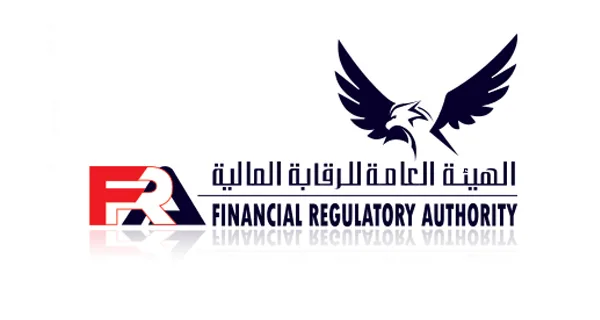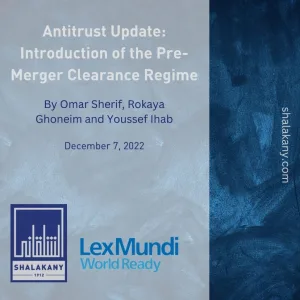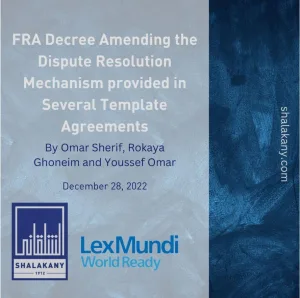The Financial Regulatory Authority (“FRA”) issued Decree No. 2 for the year 2021 (the “Decree”) setting forth comprehensive rules concerning the monitoring and control of anti-money laundering and counter-terrorism financing (“MLTF”) for entities operating in the non-banking financial sector (the “Entities”).
On 18 January 2021, the FRA issued the Decree replacing and repealing a series of prior FRA decrees issued in 2019 and 2020 containing provisions for the combatting of money-laundering and terrorist financing activities. In an effort to encourage faster awareness and more efficient notification of criminal activity, the Decree provides a holistic set of guidelines for the Entities to enhance and develop their MLTF detection mechanisms.
Below are the key highlights of the Decree with a focus on the main MLTF mechanisms included therein.
Internal Detection Mechanisms
The Decree provides a range of measures to be undertaken by the Entities in their internal structure, including an obligation to prepare an internal procedural guide that outlines the mechanisms chosen to combat MLTF. Said guide should explain how the detection mechanism works as well as include the implemented systems and procedures that would ensure the correct application of the rules contained in the Decree.
Amongst a variety of factors, the Decree requires Entities to include in the guide: (i) internal detection mechanisms for determining irregular activities and suspicious clients; (ii) detailed procedures for combating MLTF; (iii) document retention rules; (iv) detection procedures for clients on terrorist watch-lists; and (v) a client rating system based on a risk assessment of possible money laundering activities.
The Decree further requires Entities who operate branches or subsidiaries outside of Egypt to apply more concentrated MLTF combat mechanisms. This includes: (i) the establishment of an independent auditing unit to test the MLTF detection mechanisms; (ii) the enactment of policies and procedures for the exchange of information regarding clients; and (iii) incorporating a mechanism for obtaining client information from their branches when it is necessary.
In addition to the above, the Decree obliges the Entities to adopt a comprehensive yearly training program for their employees enabling the correct enforcement of the relevant MLTF mechanisms.
As part of their internal operations, the Entities must retain client documents and records for at least five years after the end of the business relationship, including information regarding the identification of clients and ultimate beneficiaries.
Finally, the Entities must appoint an officer to take charge of handling matters concerning their MLTF mechanisms. Said officer must be registered in a registry at the FRA and is required to have a minimum of three years’ experience in the field of internal auditing, supervision, risk assessment and/or internal supervision. Amongst the officer’s main tasks is the oversight of any suspicious or unusual activities and ensuring the correct action is undertaken.
Identification of Suspicious Operations
One of the key aspects introduced by the Decree are the guiding indicators to assist the Entities in identifying suspicious activities. The Decree provides a non-exhaustive list of suggestive indicators in an effort to provide guidelines for Entities to assist their analysis of any suspicious activities. Said guidelines are categorized as general indicators applicable to all Entities, and specific indicators directed at certain non-banking financial activities (i.e. securities activities, insurance activities, financial leasing, consumer financing et al.).
With regards to the general indicators, the Decree advises the Entities to focus their efforts on, inter alia: (i) the accuracy of the information supplied by their clients; (ii) the authenticity of any documents submitted thereto; (iii) any suspicious behavior of their clients including excessive interest in the Entities’ MLTF mechanisms; (iv) any sudden change in the financial behavior of their clients; and (v) any dealings of their clients in high-risk regions or regions known for corruption or MLTF activities.
Notification & Reporting of Suspicious Activities
As part of the country’s increased monitoring of MLTF activities, the Decree places an obligation on the Entities to notify the Egyptian Money Laundering and Terrorist Financing Combat Unit (the “Unit”) of any activities suspected to be falling under any money-laundering or terrorist financing crimes. Said notification must be conducted within two business days of becoming aware of the suspicious activity and is applicable to any suspicious activities, regardless of their size or impact.
In addition to the above notification, the Entities are required to produce a biannual report containing the unusual and suspicious activities reported to the Unit for submission to the FRA.
It is important to note that the Entities are subject to strict non-disclosure obligations. In this regard, the Decree requires the Entities to abstain from disclosing any suspected activities to any clients, beneficiaries or non-competent authorities, whether directly or indirectly.
Market Reaction
Although there has been no official public reaction from the regulator or key market players regarding the Decree to date, the Decree comes in light of the growing interest to enhance and adapt Egyptian MLTF regulations and mechanisms. In this regard, the FRA had shown a particular interest in working towards maintaining the safety and stability of non-banking financial markets and taking the necessary measures to combat criminal activity. The enactment of the Decree represents the FRA’s latest measure in reaching the abovementioned objective.



